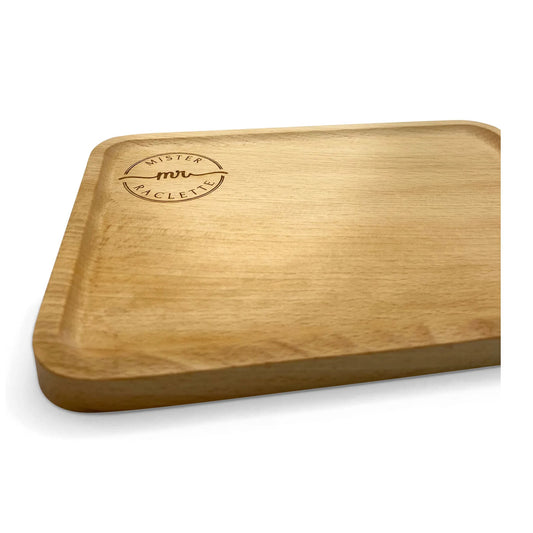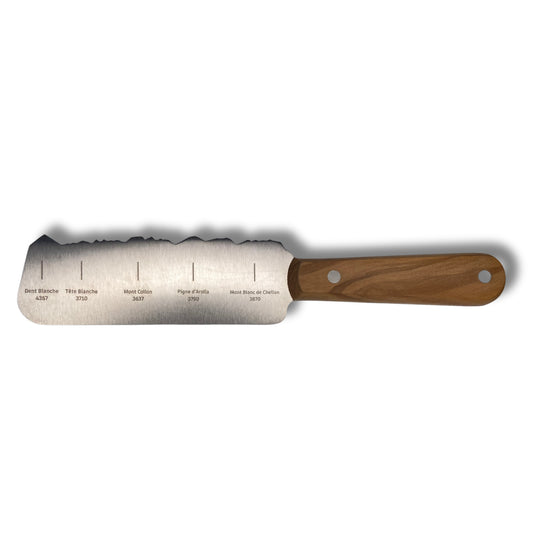Raclette cheese for pregnant women?
Pasteurized raclette cheese: the safe choice for a gourmet winter
Food safety is a major concern for many people, especially when it comes to pregnancy. Food choices take on a new dimension, where the well-being of the mother-to-be and her baby is paramount. In this context, certain foods become questionable, and cheese, especially raw-milk cheese, is often on this list. However, pasteurized raclette cheese offers an alternative that reconciles gastronomic pleasure and safety, thanks to a process that eliminates harmful bacteria while preserving the cheese's rich taste. Even if the taste of a pasteurized raclette cheese won't be as incredible as that of a raw-milk raclette cheese.Raclette cheese, a staple of convivial winter evenings, can raise questions, especially for pregnant women. The pasteurized version of raclette cheese is the ideal solution, combining authentic taste with compliance with health standards to ensure a risk-free taste experience.
The history of raclette cheese
Traditional raclette, with its origins rooted in Swiss Valais traditions, has survived the centuries to become the convivial dish we know today. Originally prepared over a wood fire, where half a wheel of cheese was roasted before being gently scraped onto the plate, this method has evolved while retaining its authentic character. The cheese, made from cow's milk, reflects the richness of the Valais terroir.Pasteurization, introduced to improve cheese safety, is a process that involves heating milk to a high temperature for a short time to eliminate potentially harmful bacteria. This technique produces a raclette cheese that retains almost all its taste qualities while being safe for everyone, including pregnant women. PDO raclette cheeses, produced using specific processes, are a guarantee of quality and prestigious origin.
Nutritional benefits and safety
Raclette cheese offers significant nutritional benefits, notably its high calcium and protein content, essential during pregnancy. Its fat content, adjusted for moderate consumption, makes it a wise choice for those who watch their diet. Pasteurization ensures effective protection against the risk of food contamination, without compromising the taste or nutritional quality of the cheese.Raclette selection and tasting
Choosing a quality raclette cheese means paying close attention to labels and certifications, which guarantee compliance with health standards and the controlled origin of the milk. The cheese's soft, melt-in-the-mouth texture and lightly golden rind make for a comforting, authentic culinary experience.For optimal enjoyment, raclette can be accompanied by a variety of foods: potatoes, fine charcuterie, onions and gherkins. This variety of accompaniments enriches the meal and suits everyone's tastes, making raclette a versatile choice appreciated by all.
Eating raclette cheese made from pasteurized milk during pregnancy
Pregnancy is a time when nutrition and food safety take on particular importance. Among the many recommendations made to pregnant women, the one concerning cheese consumption deserves special attention. Raclette cheese, appreciated for its taste and conviviality, can raise questions, particularly as regards its safe consumption during pregnancy. The use of pasteurized milk in the manufacture of raclette cheese offers a reassuring solution for expectant mothers.The benefits of pasteurized raclette cheese for pregnant women
Raclette cheese made from milk is a safe option for pregnant women. This practice is a process that eliminates potentially harmful bacteria through heating, without compromising the nutritional qualities of the cheese. As a result, raclette cheese enables expectant mothers to enjoy this culinary pleasure without exposing themselves to the risk of listeriosis, a major concern during pregnancy.Why choose pasteurized raclette cheese?
Listeriosis is a foodborne infection that can have serious consequences for the pregnant woman and her unborn child, including the risk of miscarriage, premature birth or neonatal infection. By choosing raclette cheese made from pasteurized milk, pregnant women can significantly reduce this risk, while benefiting from an important source of calcium and protein.Tips for consuming raclette cheese during pregnancy
For safe consumption of raclette cheese during pregnancy, we recommend that you :- Check the cheese label to make sure it is made from pasteurized milk.
- Store cheese according to manufacturer's instructions to prevent cross-contamination.
- Consume cheese within the recommended time after opening to guarantee freshness and safety.









